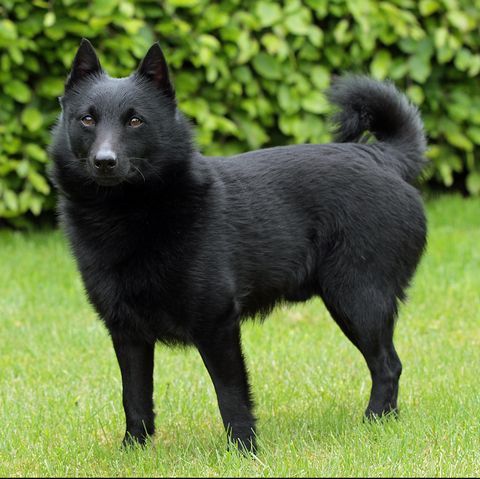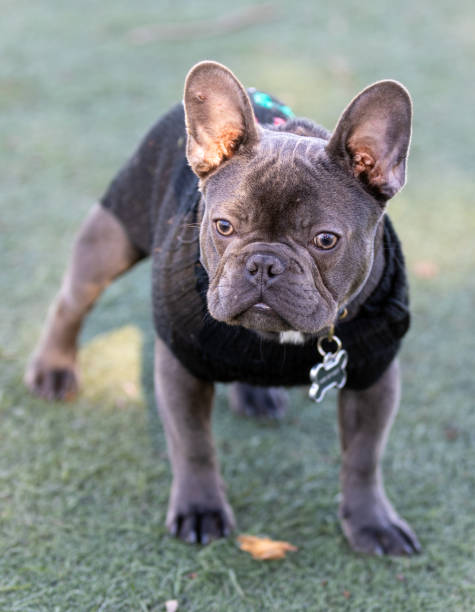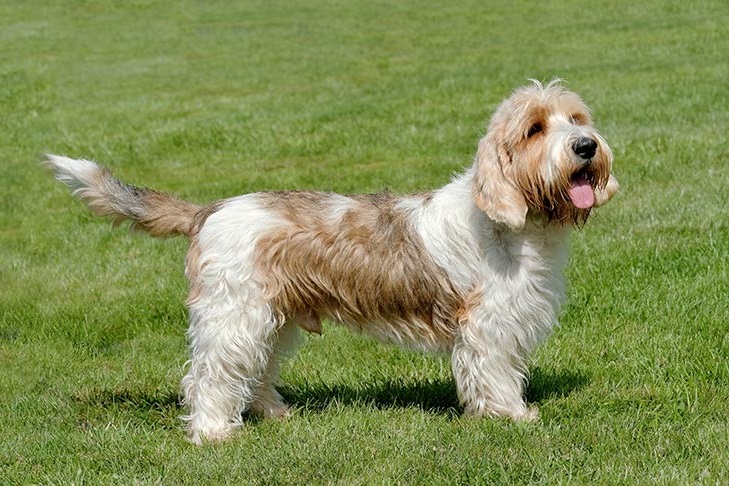Sussex Spaniel is a gun dog that combines a gentle nature with unwavering loyalty. Originating from England, these medium-sized dogs are known for their affectionate and friendly temperament, making them great companions for both families and individuals. In addition to their amiable personality, Sussex Spaniels are also highly skilled in the field, making them excellent gun dogs for hunting enthusiasts. In this article, we will explore the wonderful characteristics and qualities that make Sussex Spaniels such exceptional gun dogs.
History of Sussex Spaniels
Origin and Development
The Sussex Spaniel, a breed known for its gentle and loyal nature, has a rich history that dates back several centuries. Believed to have originated in Sussex, England, these gun dogs were primarily used for hunting and retrieving game birds.
The exact origins of the Sussex Spaniel are unclear, but it is believed to have descended from the larger Norfolk Spaniel and the smaller Clumber Spaniel. These two breeds were popular among English hunters during the 18th and 19th centuries. By selectively breeding these spaniels, breeders aimed to develop a medium-sized spaniel with exceptional hunting skills and a calm temperament.
The breed’s development continued throughout the 19th century, with enthusiasts working to establish a standard for the Sussex Spaniel. The Kennel Club, the oldest recognized kennel club in the world, officially recognized the breed in 1902.
Popularity and Decline
During the late 19th and early 20th centuries, Sussex Spaniels enjoyed a period of popularity among British hunters and dog enthusiasts. Their excellent scenting abilities, coupled with their gentle and loyal nature, made them highly sought after as gun dogs.
However, as hunting practices changed and the demand for different types of gun dogs increased, the popularity of Sussex Spaniels started to decline. The breed’s slow and deliberate hunting style was not well-suited for the fast-paced shooting sports that gained popularity during the mid-20th century.
Additionally, the two World Wars and the economic hardships that followed had a significant impact on the breed’s numbers. Many breeders and owners struggled to maintain their Sussex Spaniel lines, leading to a decline in their population.
Despite their decline in popularity, dedicated breeders and enthusiasts continued to work towards preserving and promoting the breed’s unique qualities. Today, Sussex Spaniels can still be found, although they are considered a rare breed.
Sussex Spaniel has a fascinating history that showcases its origins as a versatile gun dog and its subsequent decline in popularity. Despite the challenges faced by the breed, their gentle and loyal nature continues to captivate the hearts of those who appreciate their unique characteristics.
Physical Characteristics
Appearance
Sussex Spaniels are known for their distinct appearance. They have a sturdy and solid build with a well-balanced structure. Their overall appearance exudes elegance and charm.
Size and Weight
These gentle gun dogs have a medium-sized body. On average, adult Sussex Spaniels stand about 13 to 15 inches tall at the shoulder. In terms of weight, males typically weigh between 35 to 45 pounds, while females usually weigh slightly less, ranging from 30 to 40 pounds.
Coat and Color
The Sussex Spaniel’s coat is one of its most striking features. It is dense, weather-resistant, and slightly wavy. The texture of their coat gives them a luxurious and distinguished look. Their feathered ears and tail add to their overall appeal.
In terms of color, Sussex Spaniels come in rich shades of golden liver. This unique coloration gives them a regal and distinctive appearance. Their coat color may vary slightly, with some individuals displaying a slightly lighter or darker shade of liver. However, the liver color remains the defining characteristic of this breed.
Overall, the physical characteristics of Sussex Spaniels make them easily recognizable and highly sought after by dog enthusiasts and hunters alike.
Temperament and Personality
Gentle and affectionate nature
Sussex Spaniels are known for their gentle and affectionate nature. These dogs have a calm and friendly disposition, making them excellent companions for families and individuals alike. With their sweet and loving temperament, Sussex Spaniels are often referred to as “gentle giants.” They are known to be patient and tolerant, making them great with children and other pets. Their gentle nature makes them a popular choice for therapy work, as they are able to provide comfort and support to those in need.
Loyal and devoted
One of the standout qualities of Sussex Spaniels is their loyalty and devotion to their owners. These dogs form strong bonds with their family members and will go to great lengths to protect and please them. Sussex Spaniels are known to be highly dedicated to their loved ones, often displaying acts of loyalty that are nothing short of remarkable. Whether it’s staying by their owner’s side during difficult times or simply showering them with affection, Sussex Spaniels truly embody the meaning of loyalty.
Intelligence and trainability
While Sussex Spaniels are known for their gentle and loyal nature, they are also highly intelligent and trainable dogs. These gun dogs have a keen intellect and are quick to learn new commands and tricks. With proper training and socialization, Sussex Spaniels can excel in various activities such as obedience, agility, and even hunting. Their intelligence and eagerness to please their owners make them a joy to train. However, it is important to note that they thrive on positive reinforcement and gentle guidance, as harsh training methods can be detrimental to their sensitive nature.
In conclusion, Sussex Spaniels are truly remarkable dogs with a temperament and personality that make them stand out from the crowd. Their gentle and affectionate nature, combined with their loyalty and intelligence, make them wonderful companions for those seeking a loyal and loving gun dog.
Suitable Environments and Exercise Needs
Indoor vs. Outdoor Living
When it comes to Sussex Spaniels, they can adapt well to both indoor and outdoor living arrangements. However, it is important to note that these gentle and loyal gun dogs thrive best when they have a balance of indoor and outdoor time.
Indoor living is suitable for Sussex Spaniels as they are known to be indoor dogs. They enjoy being a part of the family and love to be around their owners. Living indoors allows them to be close to their human companions and be involved in the daily activities of the household. However, it is crucial to provide them with enough space to move around comfortably and engage in light exercise.
On the other hand, outdoor living also appeals to Sussex Spaniels, as it allows them to explore and utilize their natural hunting instincts. A securely fenced yard is essential to ensure their safety and prevent them from wandering off. Outdoor spaces provide them with the opportunity to run, play, and sniff around, which contributes to their overall well-being.
Exercise Requirements
Sussex Spaniels have moderate exercise requirements compared to some other high-energy dog breeds. Although they do not require intense exercise sessions, regular physical activity is essential to keep them healthy and happy.
Taking them for daily walks is an excellent way to fulfill their exercise needs. Aim for at least 30 minutes to an hour of walking time, divided into two or more sessions throughout the day. These walks not only provide physical exercise but also mental stimulation as they get to explore different scents and environments.
Engaging in interactive play sessions is another way to keep Sussex Spaniels physically active. They enjoy games like fetch and tug-of-war, which help them burn off energy and strengthen their bond with their owners. Puzzle toys and treat-dispensing toys can also be used to keep their minds stimulated while providing some physical activity.
Mental Stimulation
In addition to physical exercise, Sussex Spaniels require mental stimulation to prevent boredom and maintain their overall well-being. They are intelligent dogs that thrive on mental challenges and enjoy learning new things.
Training sessions are an excellent way to provide mental stimulation for Sussex Spaniels. Teach them basic obedience commands and engage in fun, reward-based training sessions to keep their minds engaged. Training not only helps them learn valuable skills but also strengthens the bond between the dog and their owner.
Providing them with interactive toys, such as puzzle toys or treat-dispensing toys, can also keep their minds active. These toys require them to work out problems and find ways to retrieve treats, which provides mental stimulation and prevents boredom.
Sussex Spaniels are adaptable to both indoor and outdoor living arrangements. They require regular exercise, including daily walks and interactive play sessions, to keep them physically fit. Additionally, mental stimulation through training and interactive toys is crucial to fulfill their intellectual needs. By providing a suitable environment and fulfilling their exercise and mental stimulation requirements, Sussex Spaniels can lead a happy and fulfilling life as gentle and loyal gun dogs.
Training and Socialization
Positive reinforcement
When it comes to training Sussex Spaniels, positive reinforcement is an effective and recommended approach. These gentle and loyal gun dogs respond well to rewards and praise, making it essential to use positive reinforcement techniques during their training sessions. By rewarding desired behaviors such as following commands or displaying good manners, you can encourage and motivate your Sussex Spaniel to continue learning and obeying.
Using treats, verbal praise, and petting as rewards will create a positive association with the desired behavior and reinforce their understanding of what is expected from them. It is important to be consistent and patient during the training process, as Sussex Spaniels may take some time to fully grasp certain commands or behaviors. With regular practice and positive reinforcement, these intelligent dogs will thrive in their training and become well-behaved companions.
Early socialization
Early socialization plays a crucial role in shaping the behavior and temperament of Sussex Spaniels. Introducing them to various people, animals, and environments at a young age helps them develop confidence and adaptability. It is recommended to expose your Sussex Spaniel puppy to different sights, sounds, smells, and experiences to ensure they grow up to be well-rounded and sociable dogs.
Taking your puppy to puppy classes, organizing playdates with other friendly dogs, and introducing them to different environments such as parks or busy streets can contribute to their socialization. Supervised interactions and positive experiences during these early stages will help your Sussex Spaniel become comfortable and friendly with both humans and other animals.
Obedience training
Obedience training is an essential aspect of owning a Sussex Spaniel. These gun dogs have a natural inclination to please their owners, making obedience training a relatively smooth process. Teaching basic commands such as sit, stay, come, and heel will not only ensure their safety but also enhance the bond between you and your Sussex Spaniel.
Consistency, patience, and positive reinforcement are key when it comes to obedience training. Start with short training sessions and gradually increase the duration as your Sussex Spaniel becomes more comfortable and focused. Use a clear and firm voice when giving commands, and reward them with treats or praise when they successfully follow instructions. Additionally, incorporating training into daily routines and making it enjoyable through interactive games or puzzles can keep your Sussex Spaniel mentally stimulated and engaged.
Remember, training and socialization should be ongoing throughout your Sussex Spaniel’s life. Regular training sessions, positive reinforcement, and exposure to new experiences will help maintain their well-behaved nature and ensure they are happy and confident companions.
Health and Care
Common health issues
Sussex Spaniels are generally healthy dogs, but like any other breed, they can be prone to certain health issues. It’s important for owners to be aware of these potential problems and take necessary precautions. Some common health issues that Sussex Spaniels may face include:
- Hip dysplasia: This is a genetic condition where the hip joint doesn’t develop properly. It can lead to pain, lameness, and arthritis. Regular exercise, a balanced diet, and avoiding excessive jumping or rough play can help prevent or manage this condition.
- Ear infections: Due to their long, droopy ears, Sussex Spaniels are more susceptible to ear infections. Regular cleaning and inspection of the ears can help prevent infections. If you notice any signs of redness, swelling, or discharge, it’s important to consult a veterinarian.
- Obesity: Sussex Spaniels have a tendency to gain weight easily. Maintaining a healthy weight is crucial to their overall well-being. Feeding them a balanced diet and providing regular exercise can help prevent obesity and related health issues.
Grooming needs
Sussex Spaniels have a beautiful, dense coat that requires regular grooming to keep it in top condition. Here are some grooming needs specific to Sussex Spaniels:
- Brushing: Their coat should be brushed at least two to three times a week to prevent matting and keep it free from tangles. Use a slicker brush or a comb with wide, rounded teeth to remove loose hair and prevent matting.
- Bathing: Sussex Spaniels should be bathed every 6 to 8 weeks or as needed. Use a gentle dog shampoo and thoroughly rinse the coat to remove any residue. Regular bathing helps keep their coat clean and healthy.
- Ear care: As mentioned earlier, Sussex Spaniels are prone to ear infections. Regularly check their ears for any signs of infection, wax buildup, or debris. Clean the ears with a veterinarian-recommended ear cleaner and cotton balls. Be gentle and avoid inserting anything deep into the ear canal.
Nutrition and feeding
Proper nutrition plays a vital role in keeping Sussex Spaniels healthy and active. Here are some important considerations when it comes to their nutrition and feeding:
- High-quality dog food: Choose a high-quality dog food that is specifically formulated for medium-sized breeds. Look for a balance of protein, carbohydrates, and healthy fats. Avoid foods with excessive fillers, artificial additives, or by-products.
- Portion control: Sussex Spaniels are prone to weight gain, so it’s essential to control their portion sizes. Follow the feeding guidelines provided by the dog food manufacturer and adjust the portions based on their activity level, age, and overall health.
- Regular feeding schedule: Establish a regular feeding schedule for your Sussex Spaniel. Divide their daily food intake into two or three meals to prevent overeating and aid digestion. Avoid free-feeding or leaving food out all day.
Remember to consult with a veterinarian for specific dietary recommendations based on your Sussex Spaniel’s individual needs and health conditions.
Sussex Spaniels are truly remarkable gun dogs that possess a unique combination of gentleness and loyalty. Their rich history as English sporting companions and their ability to adapt to various environments and tasks make them an excellent choice for hunters and dog enthusiasts alike. With their affectionate nature and eagerness to please, Sussex Spaniels make exceptional family pets as well. Whether in the field or at home, these remarkable dogs continue to win hearts with their charming personality and unwavering devotion.







